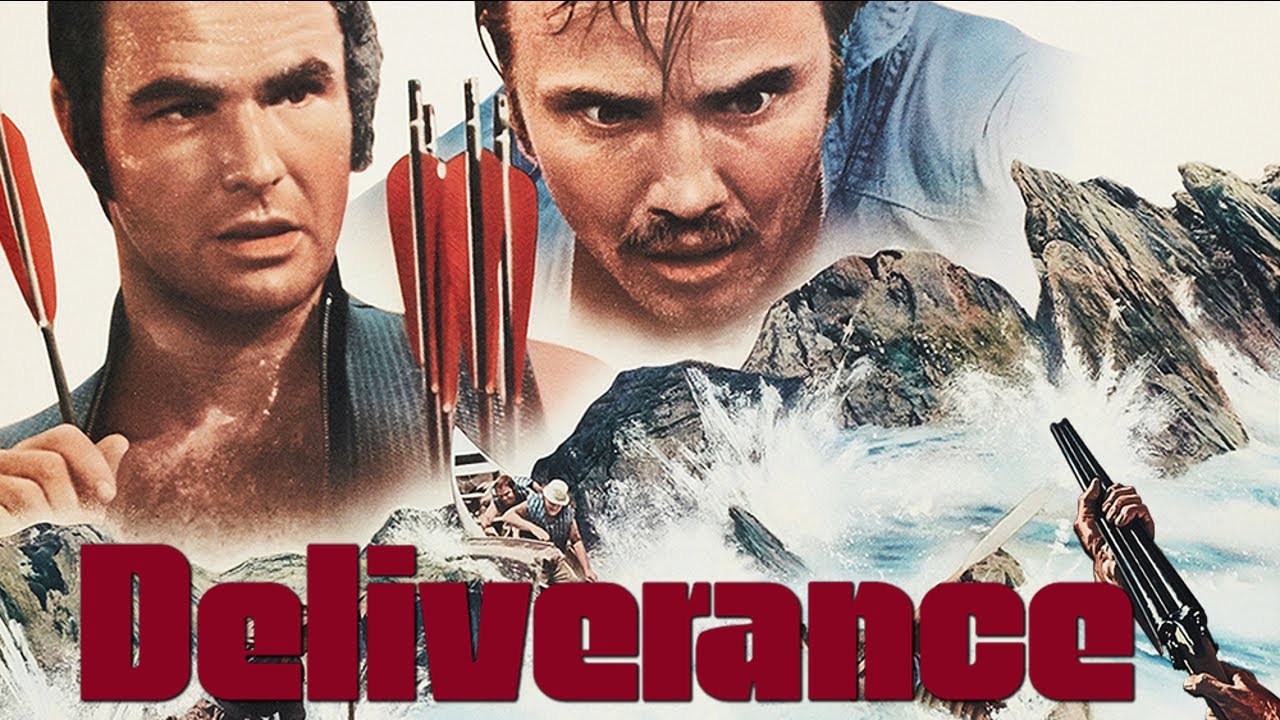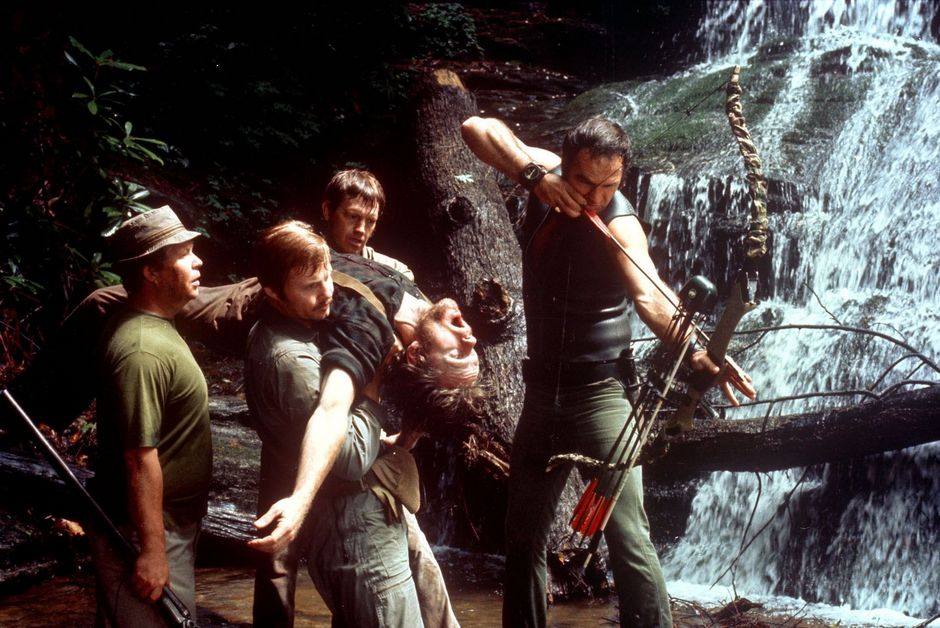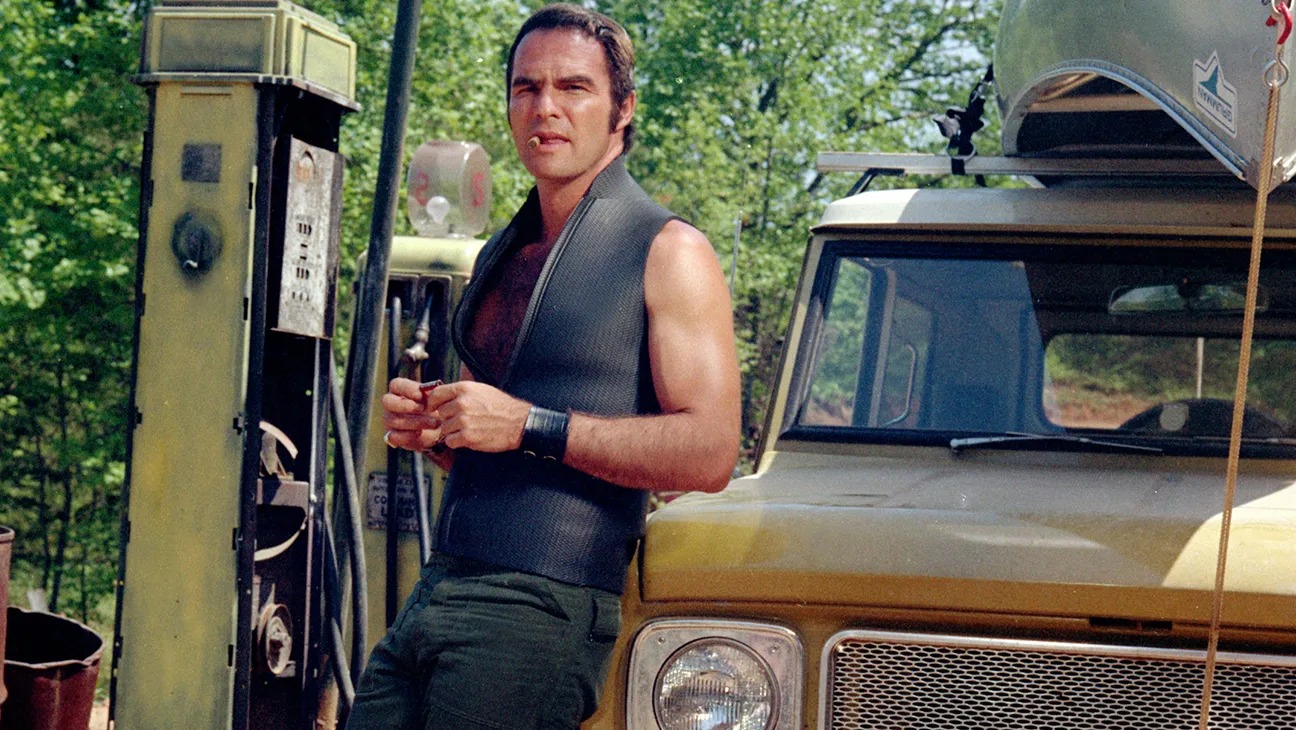Deliverance (1972)

Deliverance is a chilling 1972 American thriller directed by John Boorman and adapted from James Dickey’s 1970 novel. This gripping film stands as a testament to the terrifying potential of nature and the fragility of human civilization. It delves into the raw emotions of survival, fear, and the confrontation with evil. Through its stark storytelling, compelling performances, and haunting cinematography, Deliverance has become an unforgettable exploration of humanity’s darker instincts.
The film follows four city-dwelling men—Ed (Jon Voight), Lewis (Burt Reynolds), Bobby (Ned Beatty), and Drew (Ronny Cox)—who decide to take a canoe trip through the remote and rugged Appalachian wilderness. Their adventure takes a horrifying turn when they encounter two violent, sadistic mountain men. What begins as a fun and adventurous getaway quickly spirals into a fight for survival, testing the men’s physical and psychological limits.
The beauty of Deliverance lies not just in its suspenseful plot, but in its portrayal of how the characters change in response to the savage and uncaring environment around them. The idyllic wilderness, initially perceived as a playground for adventure, becomes a brutal and unforgiving force. The harrowing scene involving the rape of Bobby and the subsequent retaliation by the group symbolizes a loss of innocence and an awakening to the primal instincts that lie dormant within all humans.
One of the most iconic elements of the film is its hauntingly beautiful yet eerie score, composed by Eric Weissberg, especially the banjo-playing scene, which contrasts the serene landscape with the undercurrent of impending doom. The music serves as a poignant metaphor for the tension that builds throughout the film, underscoring the relentless pressure the men experience as they grapple with their fears and confront their violent survival instincts.

Burt Reynolds, in his role as the confident and resourceful Lewis, delivers a standout performance that showcases his ability to blend charisma with the cold, calculated determination needed to survive in such an environment. The film’s cinematography, particularly the sweeping shots of the river and mountains, further enhances the sense of isolation, making the wilderness itself a character in the story—a constant, omnipresent force that watches over the men’s struggle.

Deliverance is not just a horror film; it’s a psychological thriller that forces audiences to confront the concept of survival at all costs and the darkness that can emerge when people are pushed to their limits. It raises unsettling questions about human nature, the thin veneer of civilization, and the shocking realization that, when stripped of societal norms, the line between good and evil can blur beyond recognition.

Ultimately, Deliverance remains a powerful cinematic experience, a testament to both the fragility of civilization and the horrifying strength of the human will to survive. It’s a story that lingers in the mind long after the credits roll, reminding us that sometimes, the true terror lies not in the monsters we see, but in the monsters we carry inside us.











